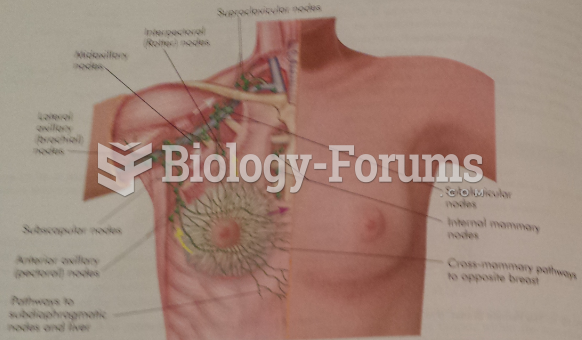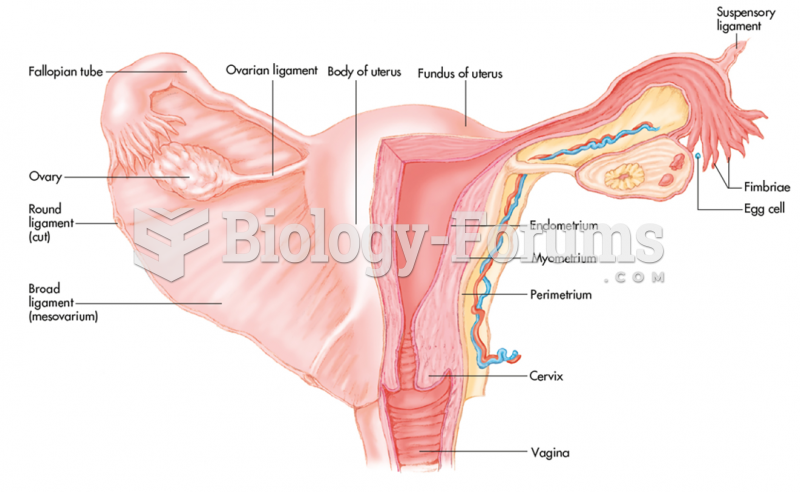|
|
|
There are more nerve cells in one human brain than there are stars in the Milky Way.
Recent studies have shown that the number of medication errors increases in relation to the number of orders that are verified per pharmacist, per work shift.
When blood is exposed to air, it clots. Heparin allows the blood to come in direct contact with air without clotting.
The people with the highest levels of LDL are Mexican American males and non-Hispanic black females.
Before a vaccine is licensed in the USA, the Food and Drug Administration (FDA) reviews it for safety and effectiveness. The CDC then reviews all studies again, as well as the American Academy of Pediatrics and the American Academy of Family Physicians. Every lot of vaccine is tested before administration to the public, and the FDA regularly inspects vaccine manufacturers' facilities.







